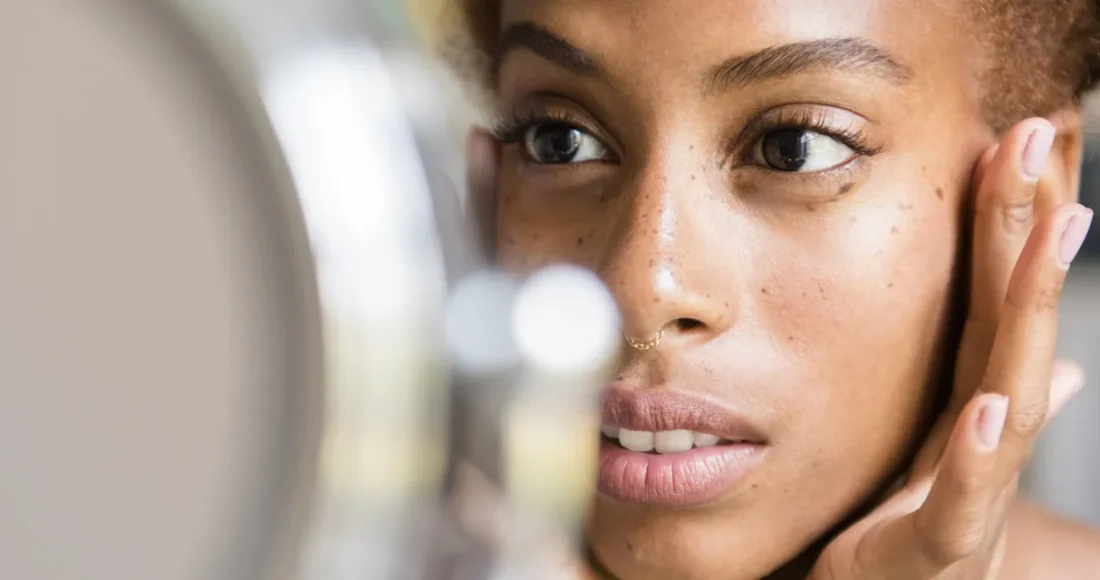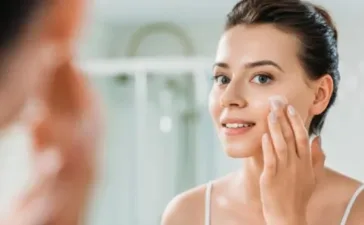In today’s fast-paced world, where appearance and self-confidence hold significant value, acne, especially hormonal acne, can be a major source of distress for individuals of all ages. Contrary to the misconception that acne is solely a teenage woe, hormonal acne can rear its frustrating head at any stage of life, affecting adults as well. We understand the emotional and physical toll that hormonal acne can take. So, we will delve deep into the causes, triggers, and most importantly, the effective strategies to deal with hormonal acne.
Understanding Hormonal Acne
Hormonal acne, as the name suggests, is primarily influenced by hormonal fluctuations in the body. Androgens, the male hormones present in both men and women, play a pivotal role in stimulating the sebaceous glands, leading to an overproduction of sebum. This excess sebum, along with dead skin cells, clogs the pores, creating a breeding ground for acne-causing bacteria. While teenagers often experience hormonal shifts during puberty, causing the development of acne, adults are not exempt from these hormonal imbalances.
The Ageless Battle: Adults and Hormonal Acne
Contrary to popular belief, hormonal acne isn’t restricted to adolescence. Adults, especially women, are susceptible to hormonal fluctuations due to various factors such as menstruation, pregnancy, menopause, and even the use of certain medications. This can result in the emergence of acne, often concentrated around the jawline, chin, and even the neck. The emotional toll of dealing with adult hormonal acne can be immense, affecting self-esteem and quality of life.
Strategies to Combat Hormonal Acne
1. Skincare Routine Overhaul
A consistent and well-tailored skincare routine is the cornerstone of managing hormonal acne. Cleansing with a gentle, non-comedogenic cleanser helps to remove excess oil and debris from the skin’s surface. Incorporating products containing salicylic acid or benzoyl peroxide can effectively target acne-causing bacteria.
2. Balanced Diet, Glowing Skin
Maintaining a balanced diet can significantly impact hormonal balance and consequently, hormonal acne. Foods rich in omega-3 fatty acids, antioxidants, and vitamin E can help in controlling inflammation and promoting healthier skin.
3. Stress Management
Stress can exacerbate hormonal imbalances, triggering acne flare-ups. Incorporating stress-reduction techniques such as yoga, meditation, and regular exercise can contribute not only to clear skin but also to overall well-being.
4. Consult a Dermatologist
When over-the-counter products and lifestyle changes fall short, seeking guidance from a dermatologist is crucial. A dermatologist can prescribe medications like retinoids or oral contraceptives that target hormonal acne effectively.
Hormonal Fluctuations: Beyond the Surface
The intricacies of hormonal imbalances go beyond what meets the eye. While hormonal acne might manifest as blemishes on the skin’s surface, the root causes often lie deep within the body. Hormones like insulin and insulin-like growth factor 1 (IGF-1) can influence the production of sebum and contribute to acne development. A diet high in refined sugars and carbohydrates can lead to insulin spikes, potentially aggravating hormonal acne. Incorporating a low-glycemic diet rich in whole foods can help regulate insulin levels and consequently, promote clearer skin.
The Gut-Skin Connection
An imbalance in gut bacteria, known as dysbiosis, can trigger inflammation that resonates throughout the body, including the skin. Probiotics and prebiotics can play a pivotal role in restoring gut health, reducing inflammation, and promoting a balanced complexion. As part of your journey to tackle hormonal acne, consider incorporating gut-friendly foods and supplements into your routine.
Harnessing the Power of Topical Treatments
In the quest for clear skin, innovative topical treatments have emerged to target hormonal acne. Retinoids, derived from vitamin A, are known for their ability to unclog pores, promote cell turnover, and fade acne scars. When integrated into a well-structured skincare routine, retinoids can help manage hormonal acne and improve overall skin texture. However, it’s crucial to approach retinoid usage with caution, as they can be potent and might require a gradual introduction.
Lifestyle Factors: Unveiling the Culprits
Beyond skincare products, several lifestyle factors can influence hormonal acne development. Environmental pollutants, such as particulate matter and air toxins, can contribute to skin inflammation and exacerbate acne. Incorporating a thorough cleansing routine that effectively removes pollutants from the skin’s surface is essential. Additionally, maintaining proper hygiene for items that come in contact with your skin, such as cellphones and pillowcases, can minimize bacterial transfer and prevent acne flare-ups.
Unlocking Your Skin’s Potential
Hormonal acne’s ability to affect individuals of all ages emphasizes the need for a comprehensive understanding of its causes and effective management strategies. By acknowledging that hormonal fluctuations can persist beyond adolescence, we empower ourselves to tackle this concern head-on. Through a holistic approach encompassing skincare, diet, stress management, and professional guidance, the battle against hormonal acne becomes an achievable feat. So, whether you’re in your teens, twenties, thirties, or beyond, remember that with knowledge and determination, you can overcome hormonal acne and embrace clear, confident skin.






